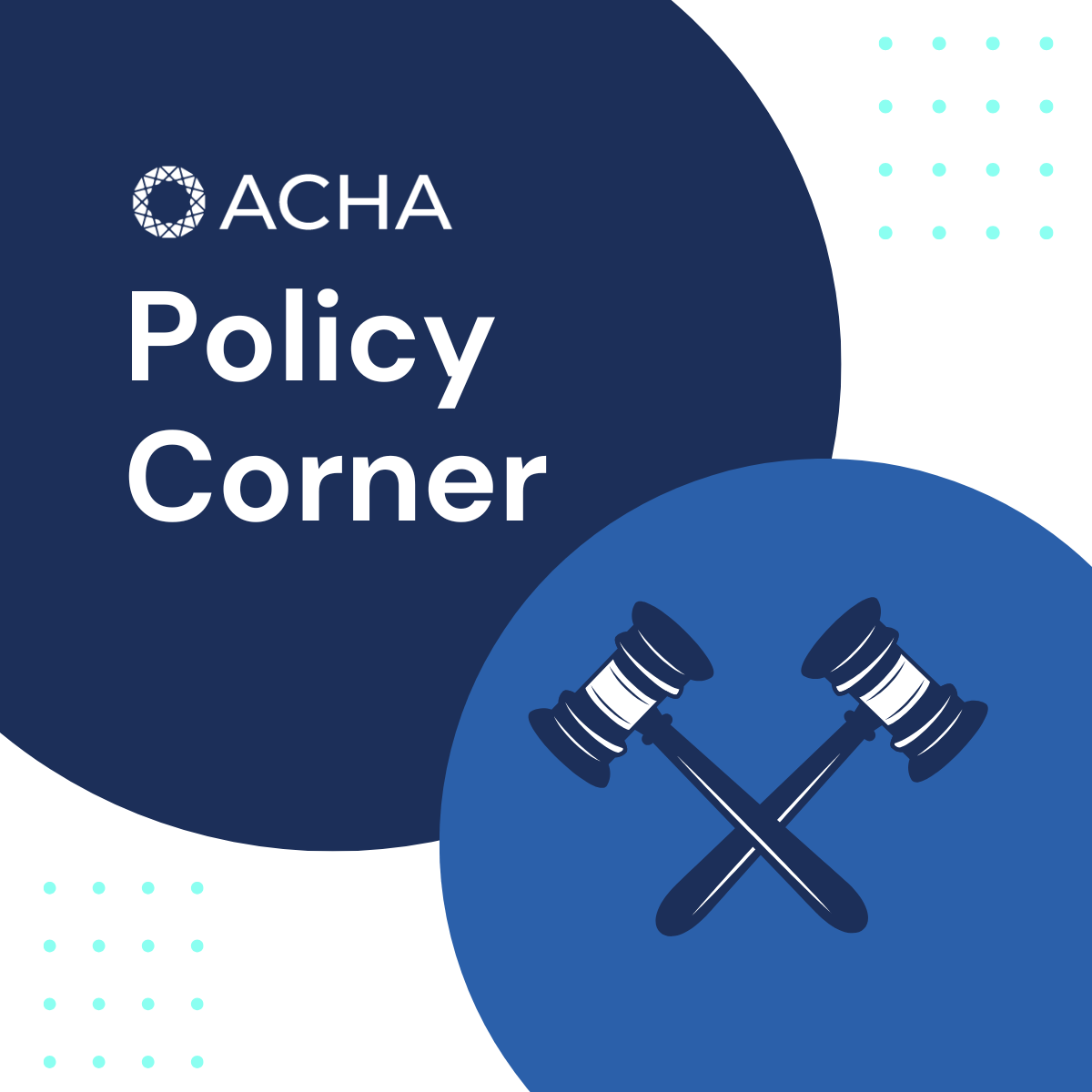Along with keeping informed about the plethora of issues impacted by the Trump Administration affecting our members, the American College Health Association (ACHA) continues to engage with the U.S. Congress on our policy priorities. Following the success of Hill Day 2025, when ACHA leaders and members of our Advocacy Committee and staff visited Congressional offices, we are working with receptive offices to draft legislation that would provide state licensure exemptions for college health and well-being staff, enabling them to continue providing care to students across state lines. The legislation would not require campuses to change existing policies or practices; instead, it would provide colleges and practitioners with the option to continue treating students across state lines.
Such a law is not without precedent. Similar waivers have been afforded to those treating veterans and members of the Armed Forces. Congress previously enacted legislation that facilitated medical staff of sports teams in treating members of those teams outside the state where the provider is licensed. There has also been a bipartisan effort to ease state licensure requirements during times of displacement due to natural disasters (see the TREAT Act (HR 5541) from the 118th Congress).
To better make the case for such legislation and to inform the drafting process, we are asking you to share any experiences you have had when you were prevented from continuing to care for a student once they were no longer in the same state. We are particularly interested in any negative outcomes that arose from an inability to access mental health treatment. Any suggested support materials, studies, messaging, etc. would also be appreciated.
We also want to hear your thoughts and concerns. Are there particular things you would like to see addressed in the legislation or not included?
Please share your stories, stats, information, suggestions, questions, and concerns by emailing advocacy@acha.org.
ACHA remains committed to leading the charge for healthier, more supportive college communities and advocating for policies that advance that mission.




